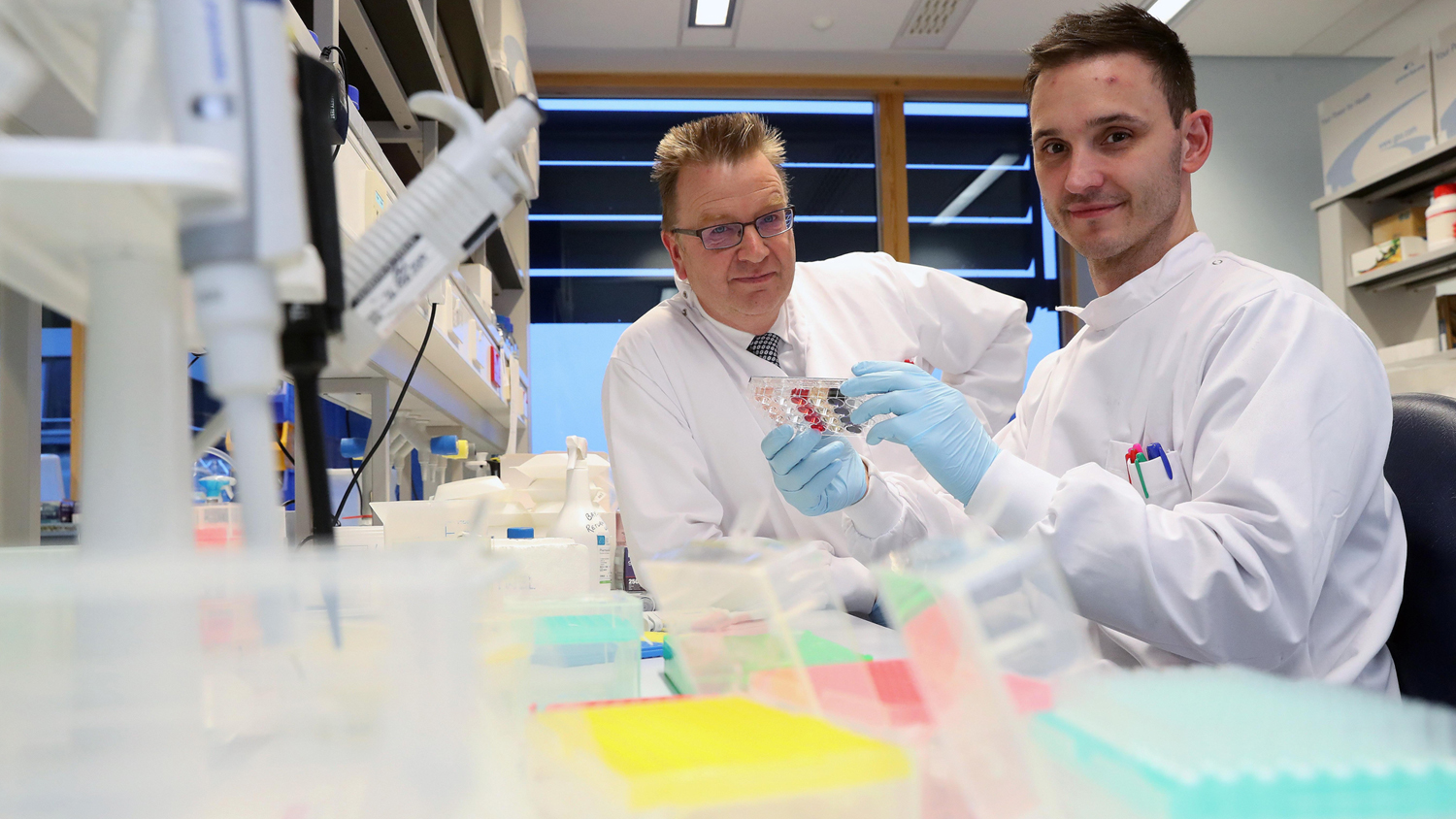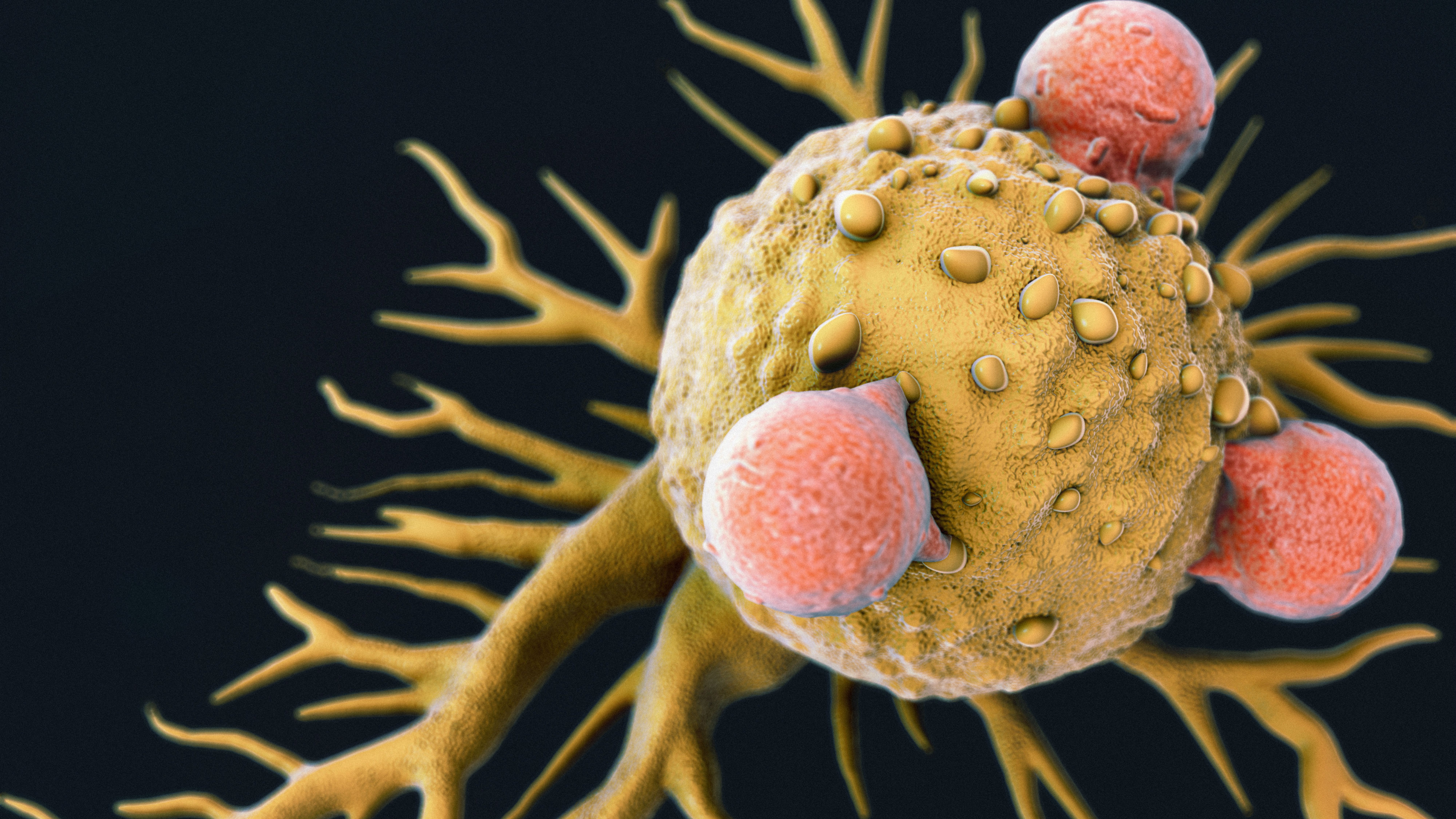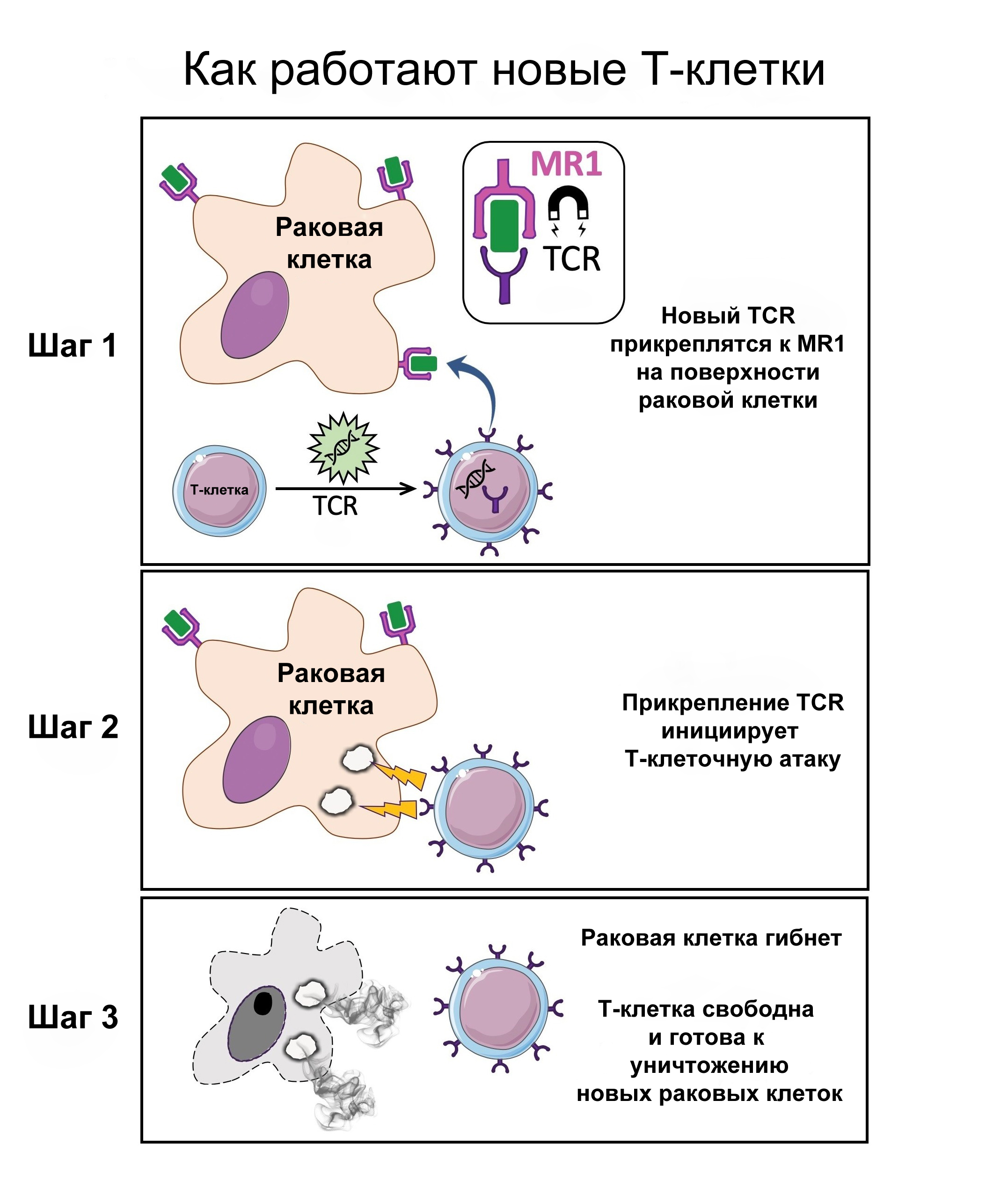Scientists have found T cells that open up the promise of universal anti-cancer immune therapy

Scientists from the University of Cardiff have discovered a new type of T-killers that give us hope for universal anti-cancer therapy.
T-cell therapy - extracting immune cells, modifying them and returning them to the patient’s blood to search for and destroy cancer cells is the latest paradigm in cancer treatment.The most widely used therapy, known as CAR-T , is personalized for each patient, but targets only a few types of cancer and has not been successful in treating the tumors that make up most cancers.Cardiff scientists have discovered T cells equipped with a new type of T cell receptor (TCR) that recognize and kill most types of cancer in humans, while ignoring healthy cells.This TCR recognizes a molecule present on the surface of a wide range of cancer cells, as well as in many normal cells of the body, but, surprisingly, it is able to distinguish between healthy and cancer cells, killing only sick people.How does this new TCR work?
Conventional T cells scan the surface of other cells to find abnormalities and eliminate cancer cells - expressing abnormal proteins - but ignore cells that contain only “normal” proteins.The scanning system recognizes small portions of cellular proteins that are associated with cell surface molecules called the human white blood cell antigen (HLA), allowing T-killers to recognize what is going on inside the cells by scanning their surface.HLA is very different in different people, which previously prevented scientists from creating universal therapy based on T cells, aimed at most types of cancer in all people.
But a work in Cardiff published in the journal Nature Immunology describes a unique TCR that can recognize many types of cancer through a single HLA-like molecule called MR1.Unlike HLA, MR1 does not change in the human population - this means that it is an extremely attractive new target in immunotherapy.What did the scientists show?
It was shown in the work that T cells equipped with the new TCR kill lung, skin, blood, colon, breast, prostate, ovarian, kidney and cervical cancer cells, while ignoring healthy cells.
To test the therapeutic potential of these cells in vivo , scientists introduced T cells capable of recognizing MR1 in mice with human cancer and the human immune system.This showed excellent cancer treatment results, which, according to scientists, were comparable to the CAR-T therapy currently used in the clinic in a similar model in animals.The Cardiff team was also able to show that T cells of melanoma patients modified to express this new TCR can destroy not only the patient’s own cancer cells, but also cancer cells of other patients in the laboratory, regardless of the patient’s HLA type.
 Professor Andrew Sewell, lead author of the study and T-cell expert at Cardiff University School of Medicine, said it was “very unusual” to find a TCR with such broad cancer specificity, and this opened up the prospect of “universal” cancer therapy.“We hope that this new TCR can provide us with a better way to eradicate a wide range of cancers in all people,” he said.“Modern treatment methods based on TCR can be used only in a small number of patients and specific cancers.
Professor Andrew Sewell, lead author of the study and T-cell expert at Cardiff University School of Medicine, said it was “very unusual” to find a TCR with such broad cancer specificity, and this opened up the prospect of “universal” cancer therapy.“We hope that this new TCR can provide us with a better way to eradicate a wide range of cancers in all people,” he said.“Modern treatment methods based on TCR can be used only in a small number of patients and specific cancers.“Targeting cancer with MR1-specific T cells is an exciting new frontier that opens up the promise of a“ universal ”cancer treatment; one type of T cell that can kill many types of cancer in a population.
"Before, no one believed it was possible."
And what are their plans?
Experiments are underway to determine the exact molecular mechanism by which the new TCR distinguishes between cancer and healthy cells.Scientists believe that it can work by sensing changes in cellular metabolism that cause various metabolic intermediates that appear on the surface of cancer cells using MR1.The research team hopes to test this new therapy on patients by the end of this year after safety tests.
Professor Sewell said that a vital aspect of ongoing safety testing is to ensure that T-killers modified by the new TCR recognize only cancer cells.“There are many obstacles that need to be overcome, but if testing is successful, I hope that the new treatment can be used in patients after a few years,” he said. Professor Oliver Ottmann, Head of the Department of Hematology, Cardiff University, Department of CAR-T Therapy, said: “This new type of T-cell therapy has enormous potential to overcome the existing limitations of CAR-T, which are struggling to find suitable and safe targets for more than a few types of cancer. ”
Professor Oliver Ottmann, Head of the Department of Hematology, Cardiff University, Department of CAR-T Therapy, said: “This new type of T-cell therapy has enormous potential to overcome the existing limitations of CAR-T, which are struggling to find suitable and safe targets for more than a few types of cancer. ”Professor Aven Gallimore, Head of the Infections, Immunity and Immunology Department of the Wales Cancer Research Center , said: “If this unique work is correct, it will lay the foundation for“ universal ”T-cell therapy, reducing the considerable costs associated with identifying, generating and growing personalized T -cells.
“This is an exciting and potentially big step forward in the availability of cancer immunotherapy.”The work was funded by the Wellcome Trust, Health and Care Wales and Tenovus research centers.Professor Kieran Walsh, director of Health and Care Research Wales, said: “We are funding research to make a real difference in people's lives. This study is a significant development in the fight against cancer and could change the treatment of thousands of patients. ”Source: https://habr.com/ru/post/undefined/
All Articles